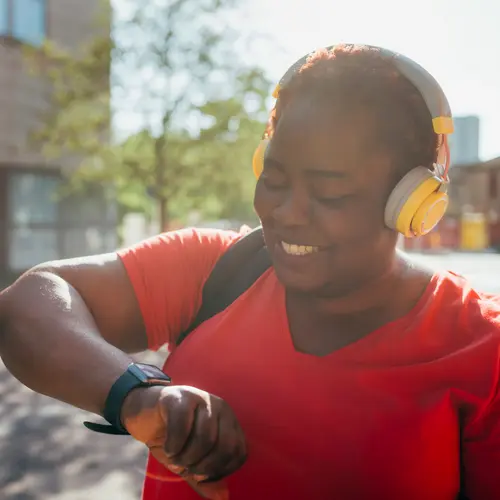You need to learn how to take charge of your health every day to live well with type 2 diabetes. The good news is, there are many safe ways to care for your condition at home. They help you to manage your disease just like you manage other parts of your life, like work, household chores, and the family budget. And they can help you feel in control of your health.
Here are some strategies to try.
Do Home Blood Sugar Tests
Knowledge is power when it comes to your blood sugar. If you find your levels aren’t where they should be, you can take steps to get them back on track. So be sure to check regularly. Some basic tips:
- Pick your spot for testing. Most meters need you to prick your fingertip to test your blood. But some newer machines can get a sample from other places on your body, like your upper arm or thigh.
- Ask your doctor when you should check your blood sugar -- like before meals, after a workout, at bedtime, or when you think they’re low.
- Make a plan with your doctor for what you need to do when your levels are too high or too low. Also, ask when you should call them if they’re too far off-target.
- Keep a record of your readings. You can write them down in a notebook, track them in an app, or rely on the memory feature of your glucose monitor. They’ll help you see trends and spot any problems. And they’ll help your doctor, too, so bring them with you to your next appointment.
Watch Your Weight
Carrying some extra pounds? If you're overweight, no matter how heavy you are, you can slash your blood sugar if you slim down. Even losing 10 or 15 pounds has health perks.
Weight loss can:
- Lower blood sugar
- Reduce blood pressure
- Improve cholesterol levels
- Lighten the stress on your hips, knees, ankles, and feet
- Give you more energy and let you breathe easier
Check with your doctor before you start a weight loss plan. Then, talk with a diabetes educator or nutritionist to figure out some healthy changes that you can stick with for a lifetime. A better diet and exercise routine can be a big help. But if those habits haven’t worked for you, ask your doctor if weight loss medications or surgery might be a good option.
Sleep and Diabetes
Not getting enough rest is a struggle for anyone, but it might be an even bigger issue for someone with diabetes: Poor ZZZs may mean worse blood-sugar control, some research shows. And it’s not just about the amount of sleep you get -- the quality of it can make a difference when it comes to improving blood sugar in people with type 2 diabetes.
If you have a hard time falling or staying asleep, ask your doctor about some ways to get better rest. They can help you figure out why you’re losing sleep. If a medical problem is keeping you awake, they can recommend some treatments that can help, like medications for neuropathy or a breathing machine for sleep apnea.
You can also:
- Practice relaxation techniques or breathing exercises right before bed.
- Get regular exercise, but try to finish your workout at least 3 hours before you hit the sack.
- Don’t smoke or drink caffeine or alcohol in the evening.
Get up and do something else outside your bedroom when you can’t sleep. Don’t go back to bed until you’re drowsy.
Think About Supplements and Natural Treatments
Do your homework before you try a supplement. Some might help control your blood sugar, but others can be harmful for people with the condition. Remember that the FDA doesn’t regulate them the same way it does medications. Be wary when you consider the claims listed on bottles and labels.
Your best bet: Always talk to your doctor before you take any over-the-counter supplements.
There are also many natural methods you can try to help control diabetes. They include alternative treatments like acupuncture, guided imagery, yoga, hypnosis, and massage. While some of these remedies, like relaxation techniques, are safe and easy to do at home, others might require a specially trained practitioner. Talk to a diabetes educator about what might help you.
High-Tech Tools
From smartphone apps to insulin pumps, a host of gadgets can help you manage this disease.
For instance, more and more sophisticated apps and software programs let people with diabetes who use regular glucose meters track and analyze blood sugar trends. You can download and store data from your meter onto a computer, and then view charts that show how often your levels were within normal ranges, as well as above or below normal.
Also, "combination tools" let you keep tabs on your blood sugar and get insulin through the insulin pump -- all in one piece of equipment.
A continuous glucose monitor is a device your doctor can attach to your skin that will measure blood sugar every few minutes for several days. That can help you find the best ways to adjust your diet, exercise, and diabetes medication for optimal control.
Talk to your diabetes educator or your doctor to see if one is right for you.

